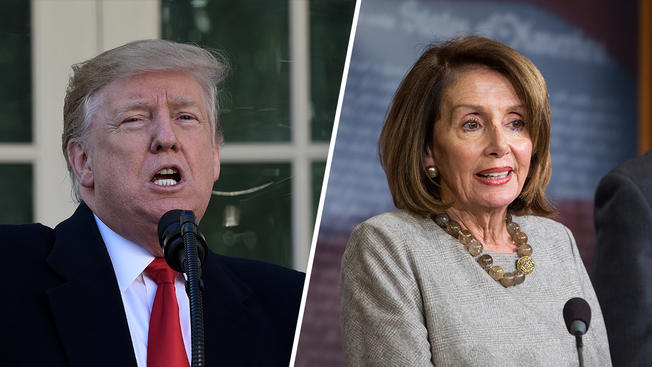Trump’s State of Emergency Talks Conjure Partisan Maneuvers
February 8, 2019
We find ourselves currently in the lull between the longest partial government shutdown in history and February 15th, the deadline for compromise to prevent the shutdown’s reinitiation. Amidst the turmoil of the Trump administration’s border wall demands, the depth of potential political maneuvering has become increasingly evident.
One of the main contemplations is President Trump’s use of the state of emergency to allocate federal funding for the wall. In a recent article, the New York Times enumerates Senate Majority Leader Mitch McConnell’s prediction: that should Trump use the state of emergency to bypass Congressional spending authority, Speaker of the House Nancy Pelosi would be likely to pass a “resolution of disapproval” to cut his ties to the additional funding. The president could veto the resolution, but any senator from either party could then demand a floor vote within 15 days. With three to ten Republicans expected to vote with the Democrats on the issue, the veto would be likely overridden.
Besides this immediate action, Democrats are already drafting legislation which would repeal the President’s ability to reroute civil works money to a national emergency, as would facilitate Trump in this instance. This demonstrates the growing unrest with how this decision could set the precedent for future presidents.
Should Trump declare a national emergency, he would set the standard that presidents can use that emergency power as a loophole to pass their own agenda without the support or approval of Congress. Coming presidents, regardless of their party, would then be empowered to do the same; for example, the article identifies that a democratic president could also declare a national emergency to push their gun reform agenda. This potential action not only proves that there are loopholes to checks and balances, but also that there is extensive political maneuvering that could override Trump’s demands, all of which would take a heavy toll on his support and promises.
In a presidency so laden with social and celebrity controversies, it seems unreal that its “defining moment–” as dubbed by Senator Lindsey Graham– would be something so heavily politics-based. Yet, it goes to show that our best means of predicting the outcome of this political standoff comes through analysis of the palpitating political ties between Congress and the presidency.
Photo Courtesy of NBC Washington










